
I finished the audiobook of Nobody’s Fool by Richard Russo 📚My third reading. I think I enjoyed it most of all this time.

I finished the audiobook of Nobody’s Fool by Richard Russo 📚My third reading. I think I enjoyed it most of all this time.

I quit The Colour Of Magic by Terry Pratchett 📚I think I’m not a Terry Pratchett guy.
Here’s something I saw while walking the dog.
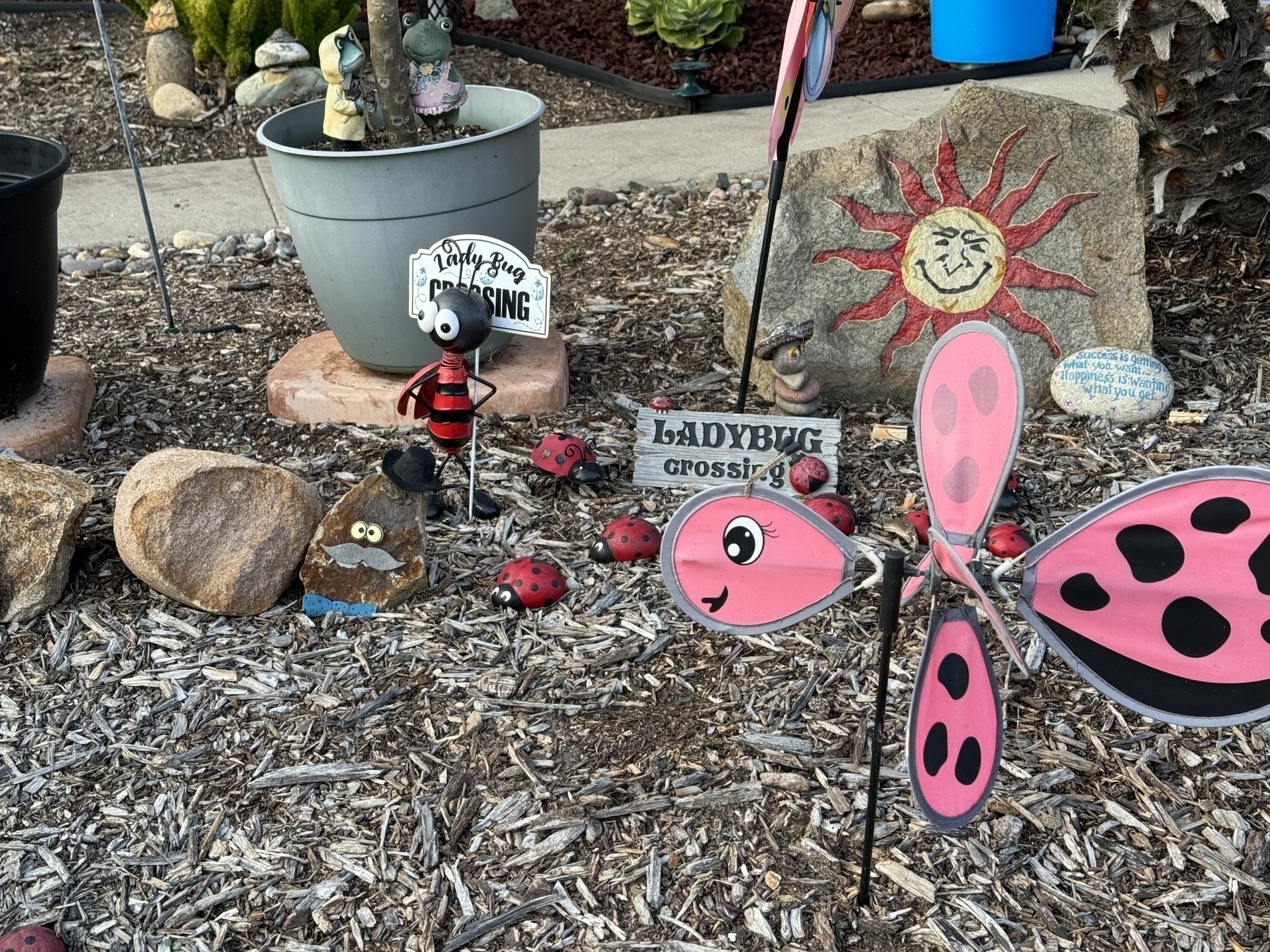
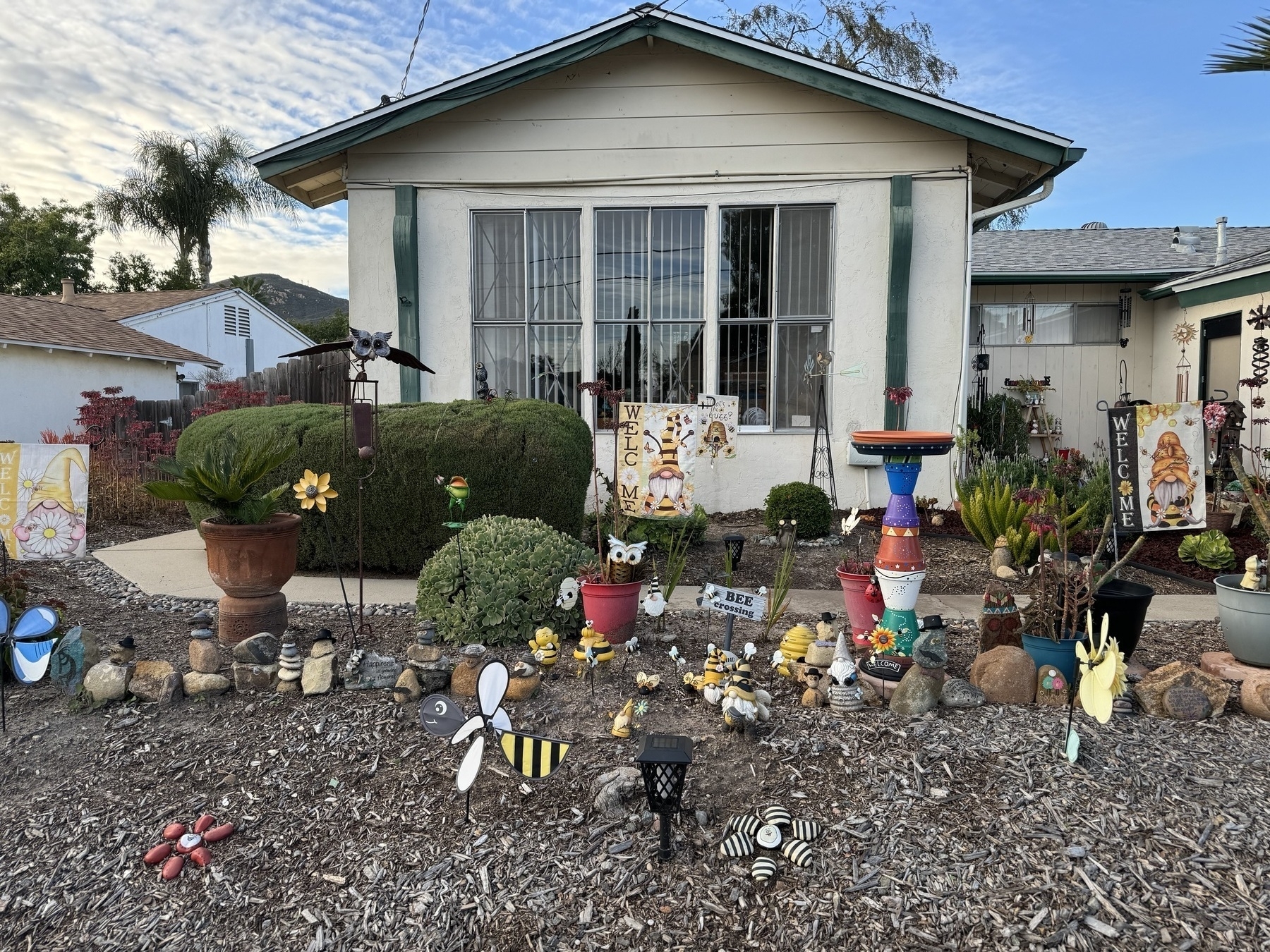
Nazis are openly mingling and making friends at the CPAC conference, Trump is getting cheers for a speech where he promises his “ultimate and absolute revenge” and another speaker got big cheers when he promised an “end to democracy.”
This is fine.
Julie started drinking coffee again regularly, and I’m drinking more. The Aeropress is getting to be too much hassle.
I ordered a drip of coffee machine. It arrives this afternoon.
This seems like more of a big deal than it actually is. It’s weird how little things become attached to our identities.
The Shirky Principle: Institutions Try to Preserve the Problem to Which They Are the Solution.
Examples: Tax preparers that lobby against laws to simplify tax filing, private prisons that lobby to support increased incarceration, a bus company suing a carpooling service, an employee resisting attempts to automate their work.
Also, British colonial officials in India set a bounty on dead cobras to reduce their population, only to find that people were breeding cobras to collect the bounty. In 1902, in Vietnam, French colonial rulers set a bounty on rat tails—figuring people would kill the rats to cut off their tails. Instead, people captured rats, cut off their tails, and set the rats free to breed more rats. Later officials found that people were raising rats to collect the bounty.
I thought I had invented the Shirky principle because I couldn’t remember hearing or reading about it anywhere else.
Cory: “Vice surrenders: Literally the stupidest publishing strategy I’ve ever heard of (ever).
Predicting that a social media platform will rug the media companies that depend on it today doesn’t take a Sun Tzu – as cunning strategies go, the hamfisted tactics of FB, Twitter and Tiktok make gambits like “Lucy and the football” look like von Clausewitz.
Josh Marshall: The Republican effort to impeach Biden was a Russian operation.
… the ludicrous Republican impeachment investigation has now been exposed as a Russian intelligence op. This, even as Republicans do Russian President Vladimir Putin’s bidding by blocking support for Ukraine and only a few short years after Trump aides welcomed Russian moves to help the Trump campaign in 2016.
The entire Biden impeachment effort was built around a guy who was peddling Russian disinformation. This seems like significant news, unless … [finger to ear] … never mind, I’m being told Biden is still old.
I’d like for micro.blog to become a Mastodon superset, supporting the important features of Mastodon—including likes, boosts and compatibility with Mastodon clients like Ice Cubes. I would cancel my Mastodon account and use micro.blog to participate in Mastodon and the Fediverse. @manton
The Twenty Thousand Hertz podcast does a delightful episode on industrial musicals.
For more than three decades, it was common for American companies to put on “industrial musicals” for their employees. These elaborate productions could rival Broadway shows, and featured original songs about the company and its products. And while this music was never intended for the general public, once you hear it for yourself, you might just get hooked. This is a story about bathroom remodeling, corporate art, and one man’s obsession with a forgotten corner of pop culture. Featuring comedy writer and collector Steve Young
Young discovered industrial musicals in the 1980s when he was a writer for the David Letterman Show. Letterman did an occasional segment where he showed the viewers the covers of weird old record albums, read the title and made a snarky comment about each. Part of Young’s job was to scour old record stores and look for those records. Of course, industrial musicals were ideal for the show.
Young started out mocking the records and productions behind them, but he came to enjoy them noncritically.
I feel the same way about the 70s kitsch and 50s recipes I sometimes post. I started out mocking them, but over time I just came to enjoy it. Midcentury was a courageous, experimental and playful time. We’re more cautious and beige today.
Young says this about people who produced the industrial musicals:
There were so many that said, “We only have one setting: Use all our talent and make it as great as it can be, even if it’s a lawnmower show that’s going to be heard once at 8 am in a hotel ballroom. Because that’s just the reason they got into this world of work, because they enjoyed making things great.
That’s how I try to approach my work as well. I know if I’m writing a whitepaper, case study or guest article that what I’m writing is not literature. But I try to approach it as if I were writing the Great American Novel.
Treat your work as if it matters and it will matter.
Also: I was peripherally involved in the production of an industrial musical in the very early 1990s. It was a production for the computer trade publication I wrote for at the time, Open Systems Today. The writer/director/producer was my friend and then-boss, Evan Schuman, whose day job was as news editor of the publication. The whole experience was a blast—great fun, though I didn’t have much to do with it myself, I just served as a sounding board for Evan for his ideas and helped out a bit backstage during the production.
I did a little blog maintenance yesterday: streamlined the header to mitchw.blog, updating the about page and the my favorite posts page, adding a page on where to find me on social media and deleting several pages nobody was looking at.
I’m trying to make mitchw.blog into my home page (remember “home pages,” kids?) along with mitchwagner.com, which looks terrible and is badly in need of updating.
Micro.blog, the excellent service that hosts this blog, recently made it relatively easy to redirect mitchwagner.com to a single-page website hosted on micro.blog. The keyword here is relatively; I have ten thumbs when it comes to anything having to do with configuring DNS and domains. The mitchwagner.com domain is the domain I use for all my email—professional and personal—so I’m waiting to make the change to that domain until I have time to back out if I botch it.
I love that Pat Gelsinger’s plan for turning Intel around is to make things. He’s not turning to financial mumbo-jumbo, Web3, crypto, advertising, sprinkling AI magic dust and the other nonsense that Silicon Valley and Wall Street dudebros do when they want to grift the last nickel from a dying business.
Gelsinger’s idea is let’s make things! like Americans used to do!
I interviewed Gelsinger a couple of times when he was at VMware, and followed VMware closely during his tenure. He impressed me.
Vice is abandoning Vice.com and laying off hundreds (The Verge). Vice published for 30 years. Engadget is swinging the chainsaw too. Shit.
Google apologizes for ‘missing the mark’ after Gemini generated racially diverse Nazis. Wingnuts on Twitter are crybabying over Google’s alleged white erasure. (Adi Robertson / The Verge)
I’m always surprised to hear about companies still using faxes. Bring back pneumatic tubes!
The Footpath app makes it easy for you to plan a route for walking, running, biking or driving, and then follow turn-by-turn directions when you’re out and about. I’ve been using the app several times a month for a few years while taking the dog out for her daily 3.2-mile walk. Footpath helps me vary my route and lets me explore the streets of my neighborhood.
I have plenty of useful iPhone apps. Footpath is the app that brings me the most happiness.
Footpath supports iPhones and Android phones. You can also use it on the Web and iPad, but the phone is the best experience..
When you open the app, Footpath presents you with a map showing your current location. Tap with your finger to set a starting point.
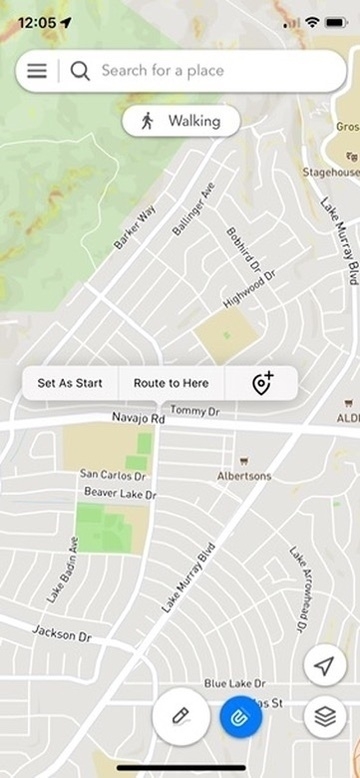
Then tap again to the next point on your route. Footpath prompts you whether you want to walk, bike or drive.
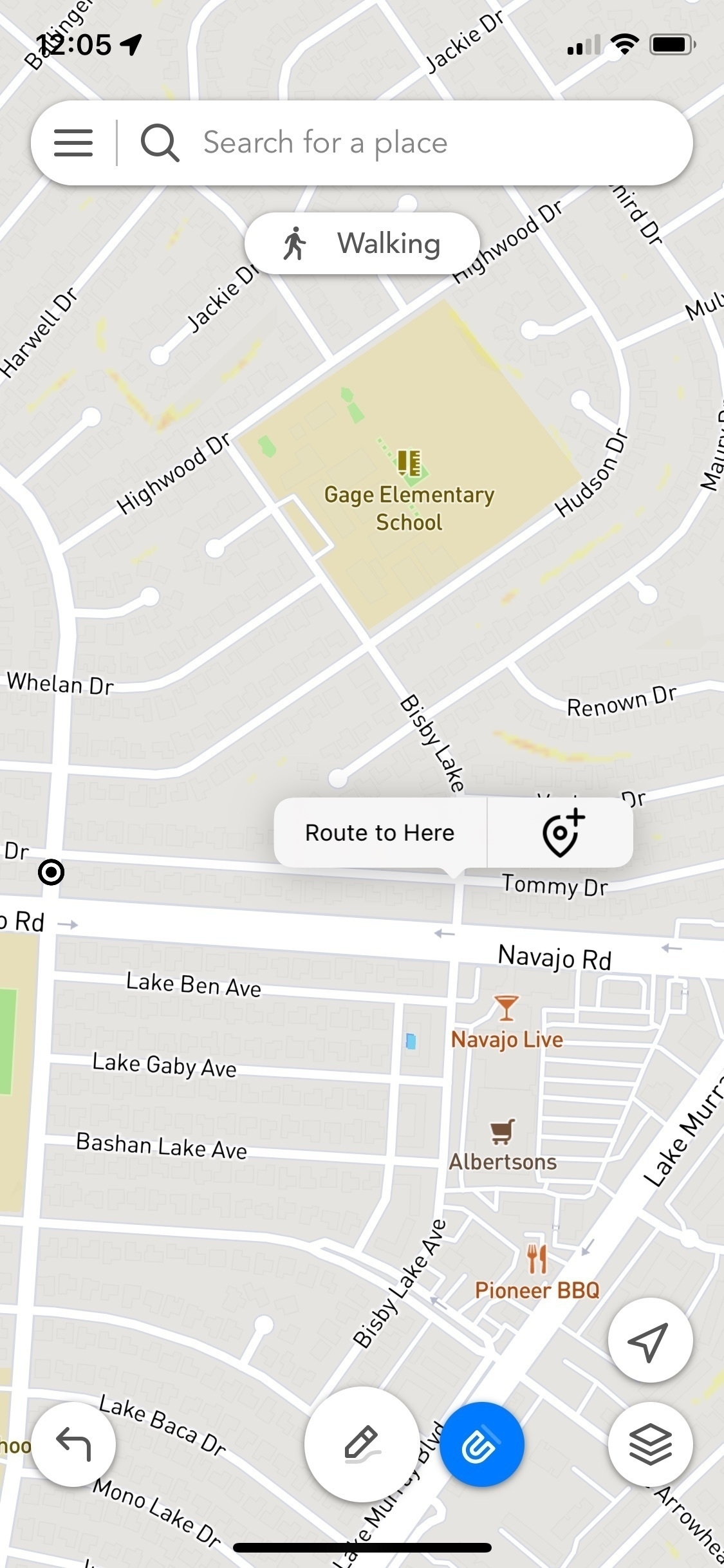
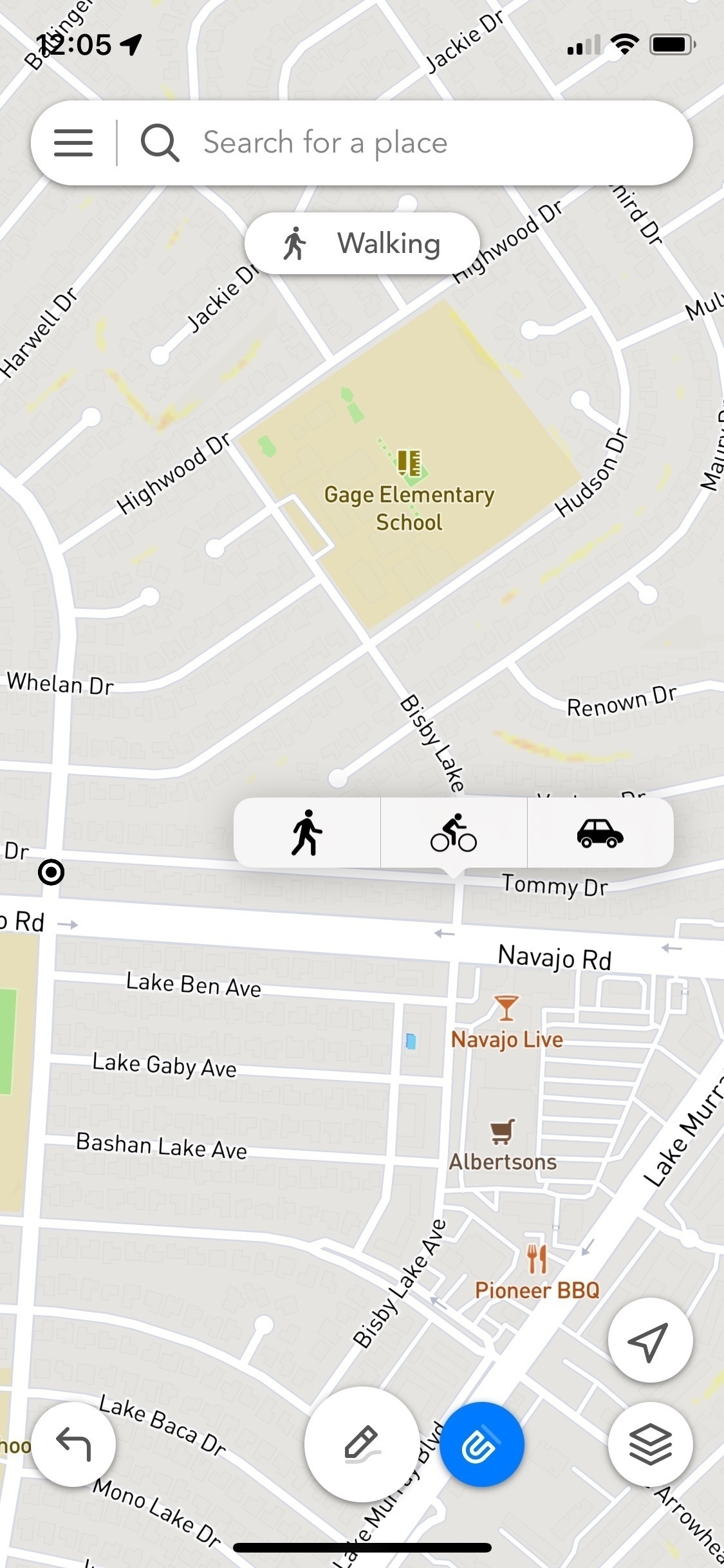
Footpath connects the two points, snapping the route to follow roads and trails on the map. Or you can disable snapping and just map straight lines from point to point.
From there, you tap the next point on your route, then the next and so on until you’re done. Footpath shows you the distance as you go. When you want to get back to your starting point, Footpath presents you with the choice to loop back—in which case Footpath offers you the shortest route—or “out-and-back,” to retrace your path. I like to use the loop option, which often gives me a different route on my return.
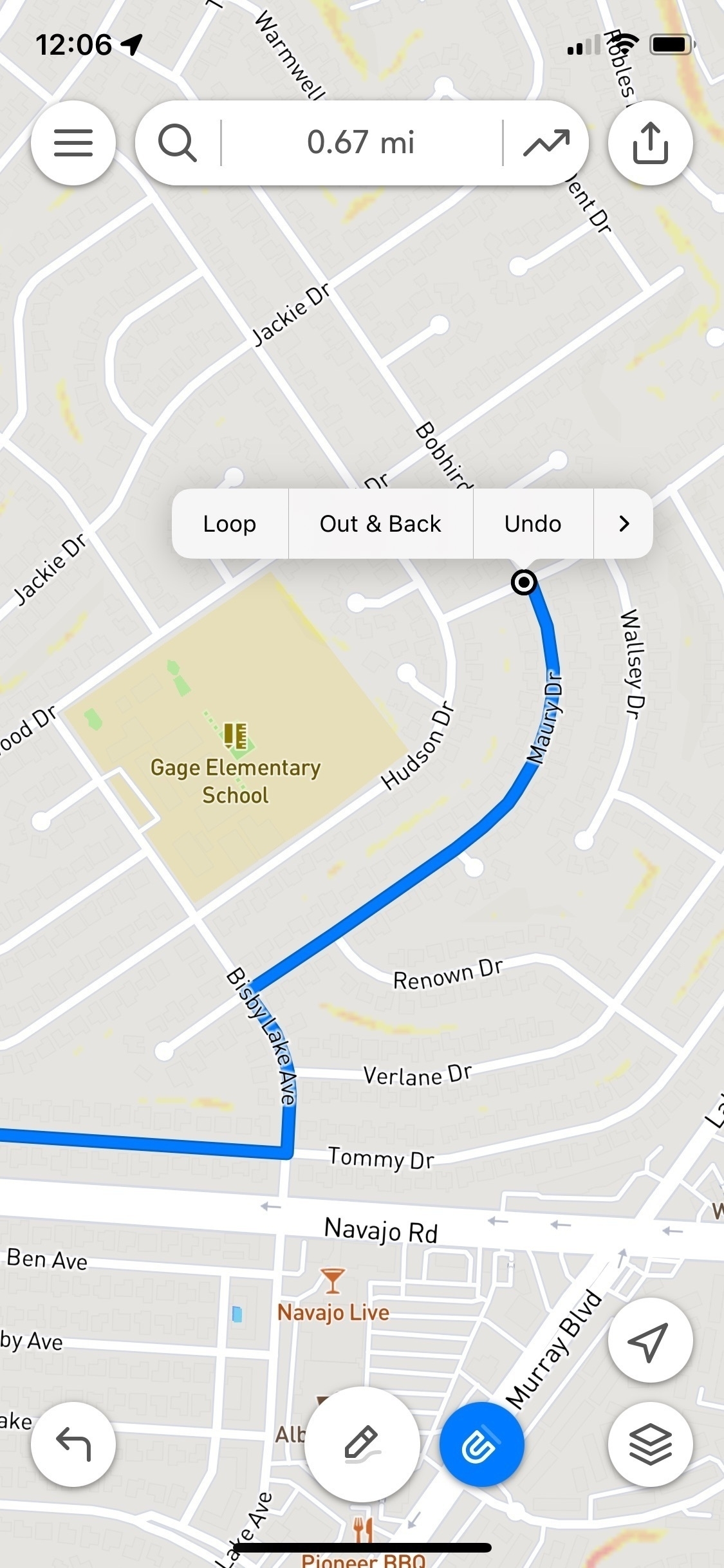
You can preview the elevation along your route. I like to do that when planning my route, to check to see if the route is relatively flat, or if it takes me on a steep climb.

Here’s a different route—a steeper climb. The red bits on the line are the steepest.

Footpath doesn’t just know about streets and roads. It also knows about, well, footpaths, even “desire paths”—unofficial paths made by people walking across vacant land between one road and another.
Footpath gives you the option to open the starting point of a route in Apple Maps or Google Maps. I usually drive a few minutes to the starting point of my walk, so it’s useful to be able to easily map a driving route.1


When you’re walking, Footpath will give you audible turn-by-turn directions—that’s a premium feature, for paid subscribers. Footpath plays nice with my podcast app (Overcast), the Audible audiobook player and Spotify; when giving directions from Footpath, the podcast, audiobook or music playback pauses and then resumes when done. You can check turn-by-turn directions and a route map on your screen as you go.

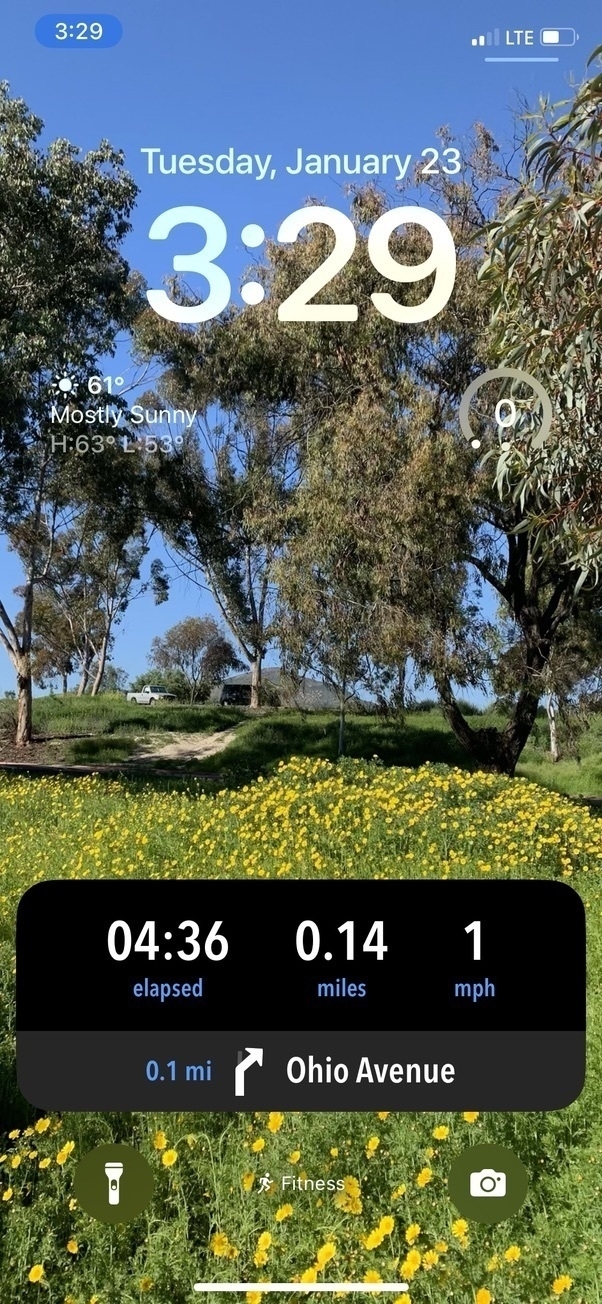
Footpath has an Apple Watch companion app, which I’ve set to tap my wrist diffidently and silently when it’s time to turn again. The Watch app itself is not as easy to read as the phone app, so I mostly just use the Watch app when I am already familiar with the route and just need a couple of reminders about when and where to turn.
Footpath gives you the option to view several different types of maps. I use “Mapbox Streets,” which resembles the default Apple Maps or Google Maps view. Sometimes I use the satellite maps view when planning out a new route, which will show me if there are sidewalks all along the way, for safety. I’m OK walking along the shoulder if I’m alone, but I’m concerned about the dog getting hit by a car.
There are topographical maps, too, to show elevation—this sounds great in theory, but I am not skilled in reading those, so instead, I just map out the view with my finger and then view the elevation.
Footpath is a freemium app. The free version gets you capabilities including tap-to-map and saving up to five routes. The Footpath Elite subscription gives you cue sheets to tell you where to turn, turn-by-turn audio directions, unlimited saved routes, and more. Here’s more information about plans. The subscription is priced at $4/month or $24/year. I pay for an annual subscription.
Footpath works in conjunction with the Workouts app on the Apple Watch. I use both together—Footpath to map my route, and Workouts to record the walk.
Footpath isn’t perfect. The home screen is confusing. Even after using the app for years, I get confused as to how to find a saved route, for example.
I have never been able to figure out how to edit existing routes with Footpath, even though that’s a supported feature.
Routes mapped and saved on the iPad don’t reliably sync to the iPhone.
The controls for manually playing your next prompt are the same controls for pausing a podcast, so when someone stops me on my walk and I pause my podcast to chat, Footpath starts talking with me and I look like an idiot waiting for it to shut up.
Despite a few hiccups, Footpath is a great, user-friendly tool for people looking to inject variety and exploration into their walks, runs, bikes or drives. Footpath does the job when the journey is more important than the destination.
The dog loves it when I park the car when we’re driving together because she’s sure that means a walk is going to begin. I feel like a fink when we’re actually going to the vet. ↩︎
There is a road called Princess View Drive near our house that I have driven on many times, but I have never seen a princess.
The American Nazis (the organization formerly known as Republicans) aren’t coming for Jews—now. They say they love Jews.
They’re coming for migrants and LGBTQ people. They’re turning women into breeding cows.
But they will come for the Jews soon enough. We will not have to wait long.
when they aren’t hallucinating, what they’re capable of is still impressive, though it’s a bit like watching a dog walk around on two legs – fun, but not exactly an efficient way to get around.
Ryan Broderick at Garbage Day says AI search is worse than conventional search and could potentially kill the web. AI search feeds on existing blogs, articles and other websites, while removing incentives for people to create those things. In this scenario, generative AI is like a wild animal that kills everything in the food chain that feeds it and then starves to death.
Also, Cory notes that we gave Google a monopoly on search and Google in return was supposed to protect us from search spam, a job at which it is utterly failing. “Google literally has one job: to detect this kind of thing and crush it.”
For what it’s worth, I’ve been using ChatGPT for search, and have also used the Perplexity AI search engines. They’ve been fine for quick hits; I haven’t tried either on deep research.
Google is still good for some things, but I’ve noticed it falling down in two areas: Product reviews (I go to reddit or Wirecutter for those) and how-tos, where Google serves up a half-dozen videos before it gets to the actual instructions I’m looking for.
During our last time going out to lunch before the pandemic, my dad (who was the only member of his family to survive the Holocaust and later spent years in the Partisans fighting the Nazis) and I were walking toward a restaurant, and he expressed his dismay that Americans weren’t taking the threat to our country seriously enough. I suggested that while most Americans were concerned, they didn’t see the Trump era as being that ominous because they assumed the kinds of things that happened in his life could never happen here. My dad stopped walking, looked at me, and asked, “You think vhen I vas a kid any of us thought it could happen there?”
Apple warns users to stop putting wet iPhones in rice (Gizmodo)
That was a big clue on a crime show. The detective noticed that the murder victim had bought a large quantity of rice, and surmised that the victim was using it to dry out a wet phone, which proved important to solving the murder.
When I was a boy attending Hebrew school, the Holocaust was living memory for the adults teaching us. They told us: “You think of yourselves as Americans first. That’s exactly how German Jews thought of themselves in the early 1930s.” I think about that more and more lately.
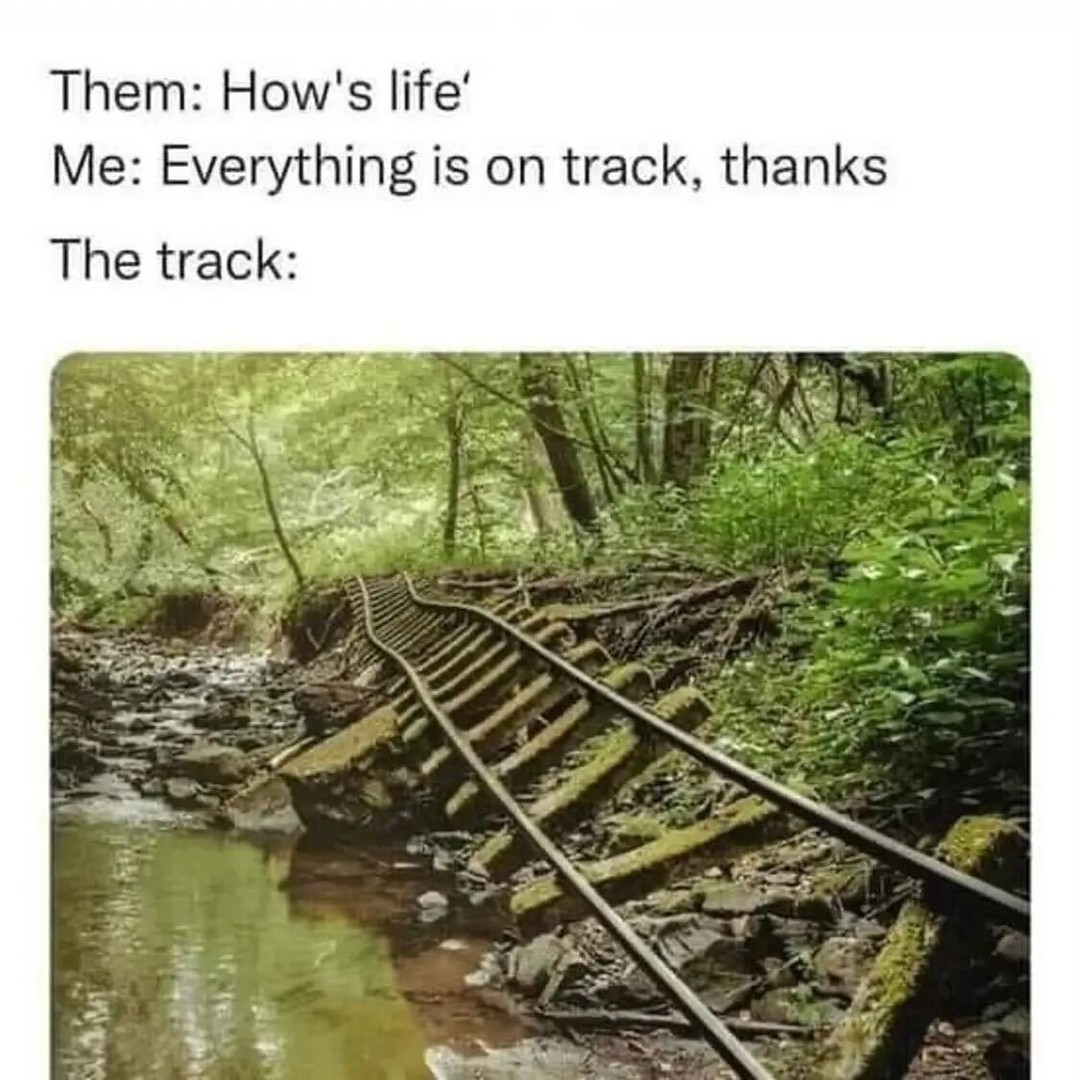





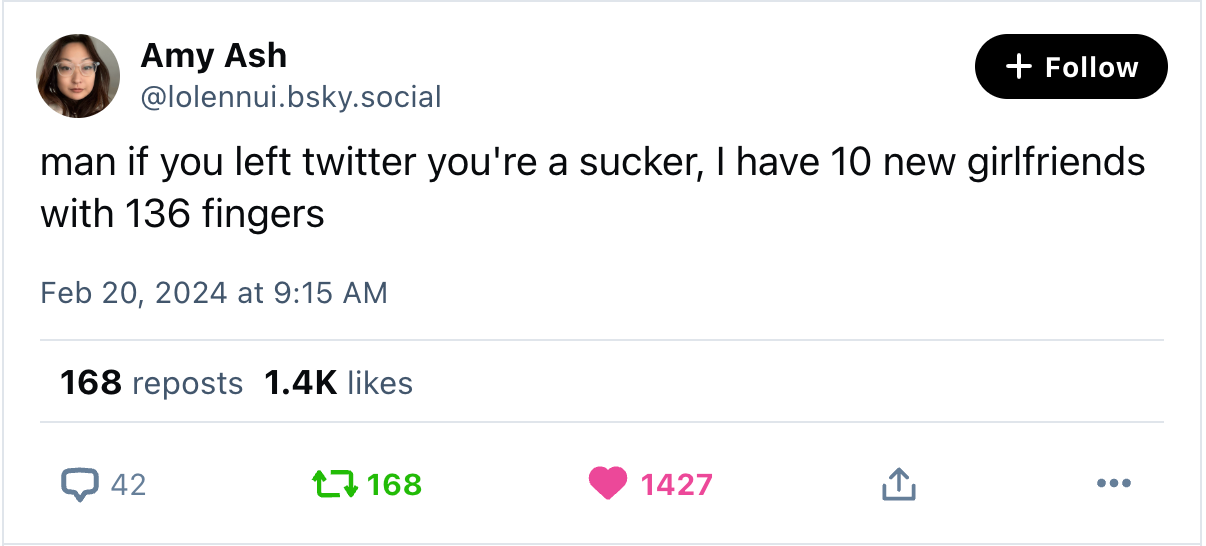
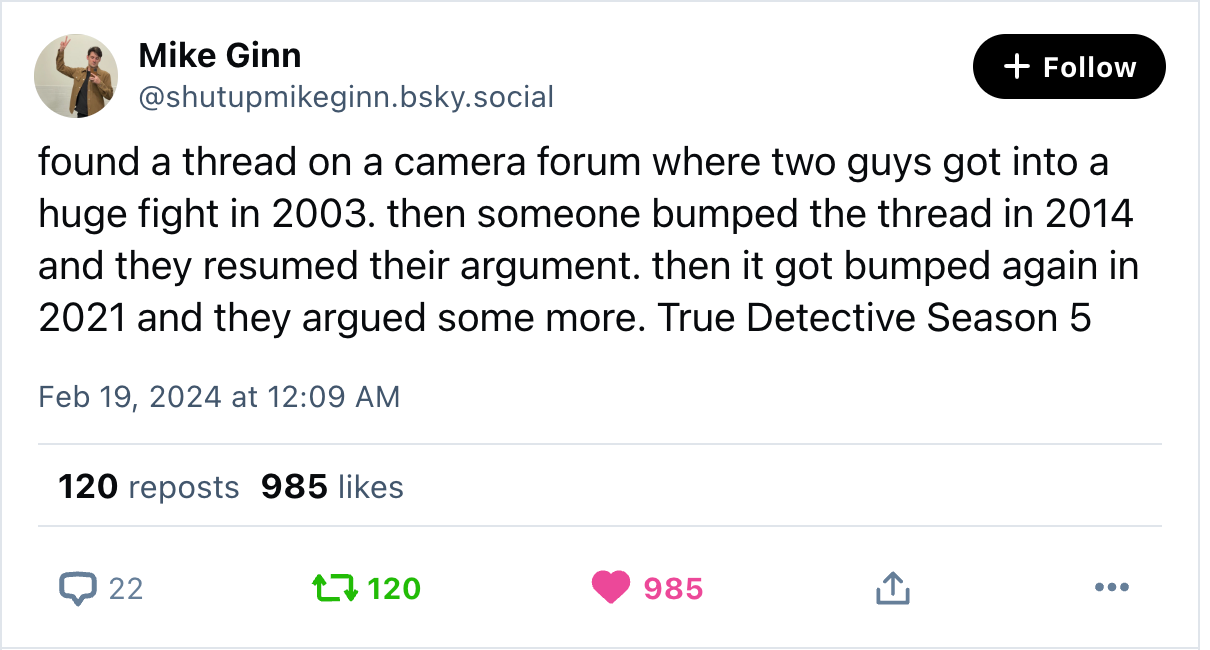
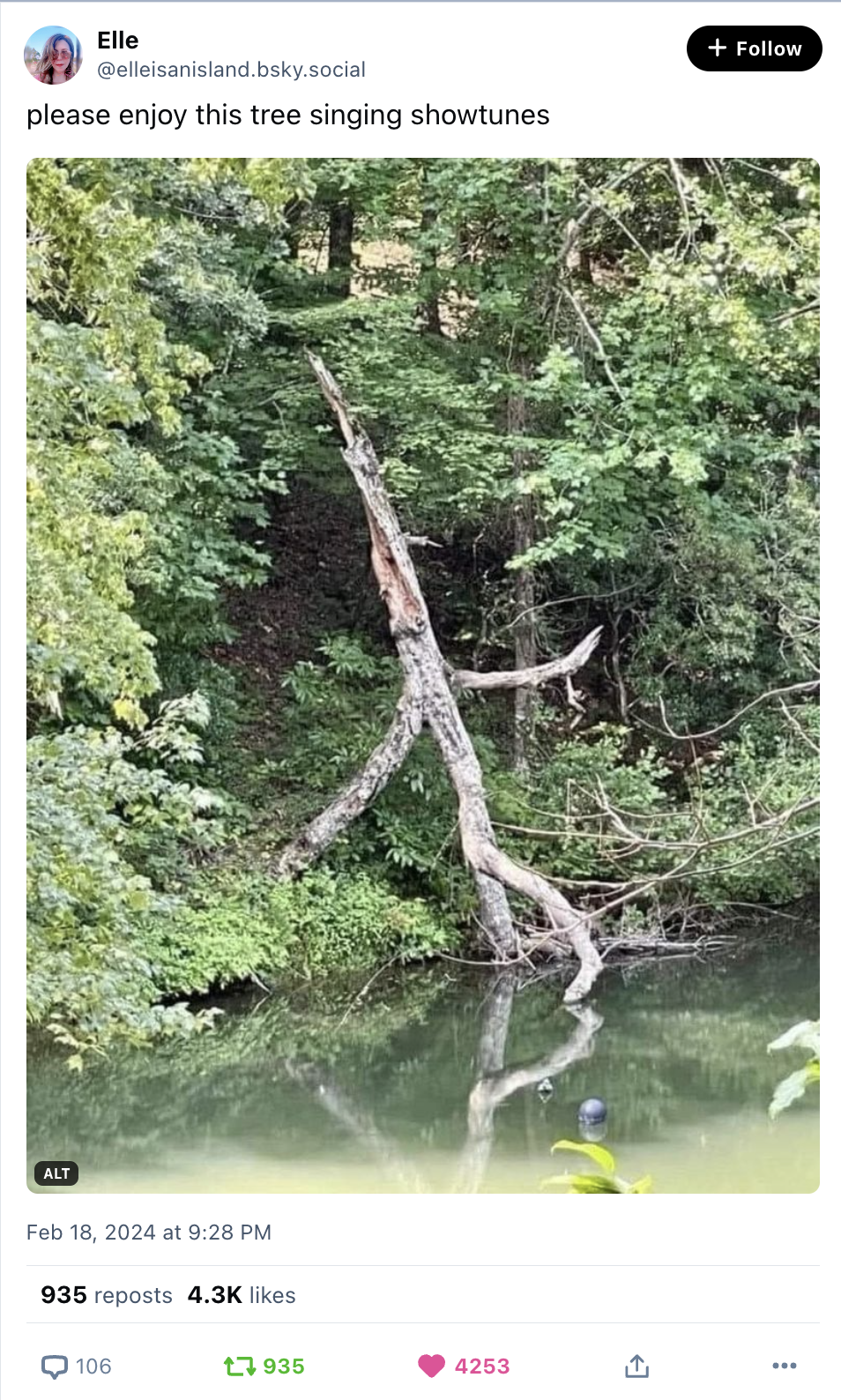
Cory’s Pluralistic blog turns four. Here, he talks once again about his Memex Method of taking notes in public. I have never been able to make that work for me, though I’ve tried. pluralistic.net
Alabama’s supreme court rules frozen embryos are ‘children’ theguardian.com
In a decision using flagrantly unconstitutional religious language, the court allows two wrongful death lawsuits to proceed against a fertility clinic.
Haley’s plan to unite the United States: pardon Trump. “It is unclear why or how Haley thinks this move would bring the American people together unless the together she speaks of is a civil war.” boingboing.net
“I just kind of think of her as a lowlife” Colorado GOP voters reject Lauren Boebert boingboing.net
My five-year-old Mac wheezes to a halt if I have more than a few Safari tabs open, but I recently switched to the Vivaldi browser, and now I have 93 open tabs. So, um, yay?
Stickers to manage social media replies. “Do not reply to deny my lived experience.” “Do not reply to tell me to use open source software.” “Do not reply to teach me about capitalism or enshittification. I know.” And more.
An in-depth explainer why the New York Times might win its copyright lawsuit against OpenAI, which the AI community says would be catastrophic. arstechnica.com
Japanese startup Astroscale’s mission is cleaning up space junk. arstechnica.com
We watched the first episode of “Resident Alien,” about an extraterrestrial who assumes the identity of a doctor in a Colorado small town where people are colorful. “Northern Exposure” meets “Starman.” The show stars Alan Tudyk, who played Wash in “Firefly.” Pretty good. I’ll give it another try.
Before the IBM PC, There Was the TRS-80
Radio Shack, known for its DIY kits and gear, unveiled this low-cost computer in 1977 in a bid to capture the fledgling PC market.
I had forgotten that the consumer PC revolution started in the mid-late 1970s, even though I was a teen-ager then and aware of what was going on. I think of it as a mid-80s phenomenon.
Trust Between Southeastern San Diego Flood Survivors and Local Government Is Dead
Flooded residents of the Southcrest, Shelltown and Mountain View neighborhoods of San Diego say they’ve been abandoned by the city and county and some say politicians are trying to drive them out to inflate real estate prices.
Will Huntsberry at the Voice of San Diego:
The flood waters have receded, but in these southeastern San Diego neighborhoods a crisis of trust is now ripping through the streets. From block to block the narrative is the same: City officials knew for years the flood canals were clogged and did nothing to clean them. After the floods, city leaders didn’t jump into action to provide relief; it was neighbors and homegrown nonprofits.
The residents of these historically Black and Latino neighborhoods can draw but two conclusions. At best, city leaders don’t care if they are forced from their homes. At worst, city leaders want them gone.
…
In other words, city leaders purposefully allowed Shelltown, Southcrest and Mountain View to flood, so that other people could take the land.
City officials, of course, have offered many explanations for why they never cleaned Chollas Creek. The amount of money for stormwater improvement is dangerously low. Certain environmental regulations were hard to get around. They have also said the amount of rain was so severe that cleaning the canals would not have stopped the floods. But none of this has resonated with the flood survivors. Would so many calls for a channel to be cleaned have gone unanswered in La Jolla they wonder?
Now, they are all forced to watch as the fabric of their community is torn apart.
Jessica Calix adored her neighbors in Southcrest. She rented a two-bedroom for $1,650 per month — unheard of in today’s rental market. Now, she’s stuck in a motel, searching for a new place. She can barely find a studio apartment in the same price range.
That’s bad for her and other renters, Calix said. But it’s good for landlords.
“Landlords will clean their places up and rent them for an extra thousand dollars or more now,” Calix said.
Roughly 70 percent of people in Shelltown, Southcrest and Mountain View are renters, according to US Census data.
And it’s not just renters being pushed out, according to the rumors going around. Stories of cheap cash offers for waterlogged houses are also making the rounds.
Rain and possible flooding is forecast to start again in a few hours and continue two days.
EFF: Don’t Fall for the Latest Changes to the Dangerous Kids Online Safety Act. KOSA supporters claim it protects kids, but it actually endangers them and unconstitutionally restricts free speech. One of the co-sponsors of the bill specifically says she wants to use it to suppress trans speech.
The season finale of “All Creatures Great and Small” was satisfactory. Drunk Carmody is my role model.
Ezra Klein: Democrats Have a Better Option Than Biden. Biden is a great President, but he’s running a lousy re-election campaign. Polling shows him losing to Trump. The solution, says Klein, is for Biden’s closest advisors—people like Barack Obama and Chuck Schumer—to convince Biden to stand aside and not seek re-election, and then to choose a new candidate at the convention.
The Hugo Awards, a major literary prize for science fiction, have been engulfed in controversy over revelations that some writers may have been excluded based on their perceived criticism of China or the Chinese government.
Suspicions in the science fiction community have been building for weeks that something was amiss with last year’s awards, which rotate to a different city each year, and in 2023 were hosted in Chengdu, China. Now, newly released emails show that the awards were likely manipulated because of political concerns.
Also:
“The Hugo Awards tried so hard to appease the Chinese government they circled back to being racist by preemptively disqualifying Chinese diaspora,” Xiran Jay Zhao wrote on X.
The Cluetrain Manifesto is turning 25.
The Marine Corps credited Mawhinney with 103 kills as well as 216 ‘probable’ kills that could not be confirmed because of the dangerous conditions in which the shootings happened…. The Oregon native recorded all of the kills before he turned 20….. Serving as a sniper “was the ultimate hunting trip: a man hunting another man who was hunting me,” Mawhinney told the Los Angeles Times in 2000. “Don’t talk to me about hunting lions or elephants; they don’t fight back with rifles and scopes. I just loved it.”
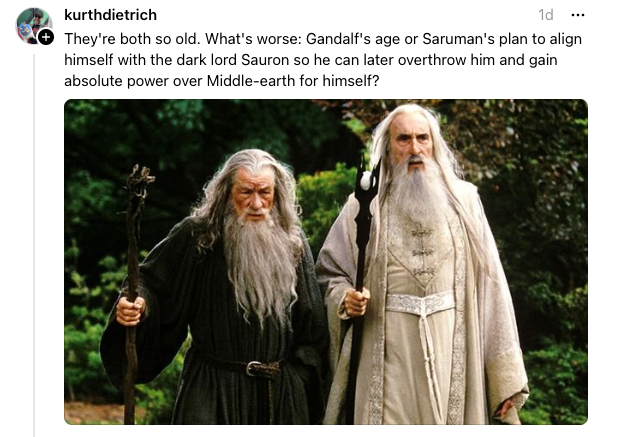
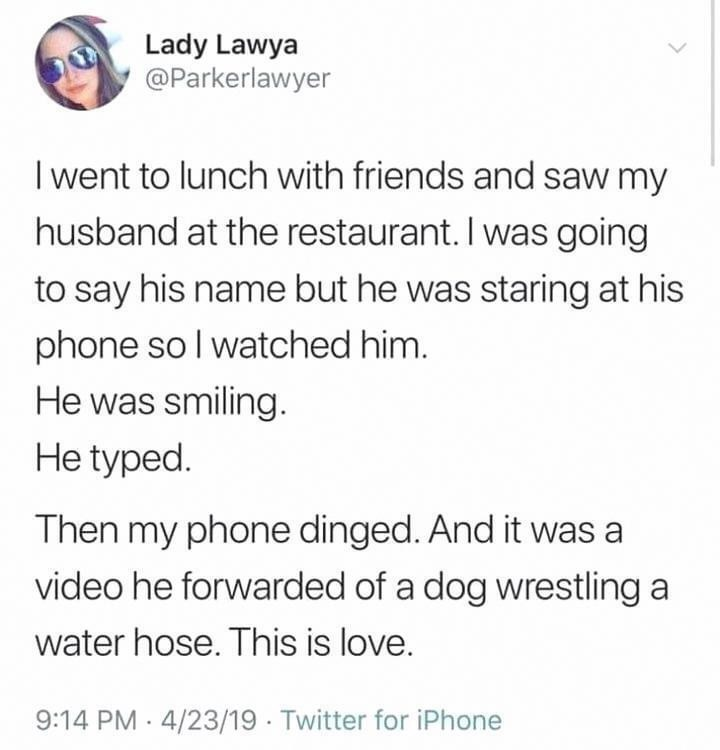
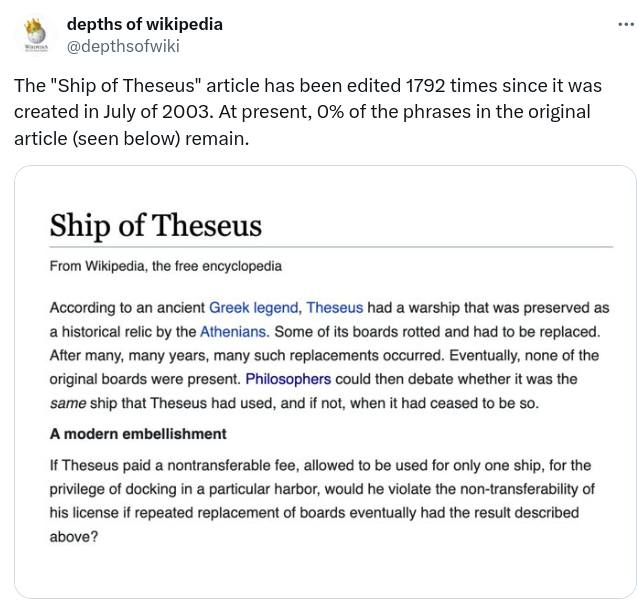
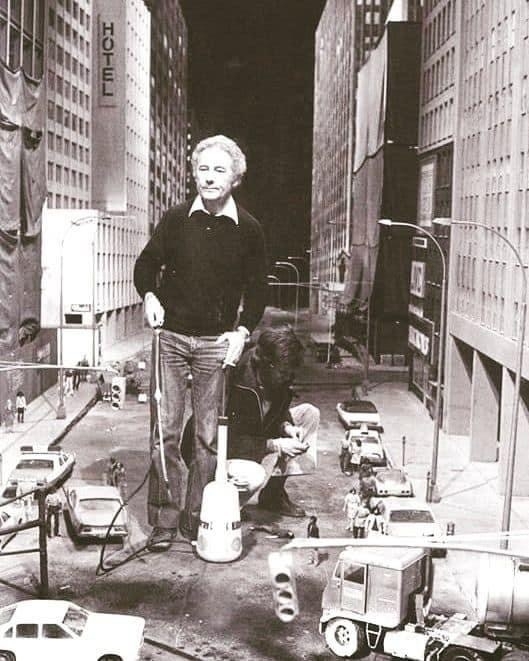
Superman II (1980) featured some ground breaking special effects, in particular the battle between Superman and the supervillains General Zod, Ursa and Non and here is special effects designer Derek Meddings (1931-1995) on the model “battle” set of Superman II. For his work on Superman (1978), he was awarded a shared Special Achievement Award for special effects by the Academy of Motion Picture Arts and Sciences, and shared the Michael Balcon Award of the British Academy of Film and Television Arts (BAFTA). He was also nominated for the 1980 Academy Award for Best Visual Effects for his work on Moonraker (1979), for the 1990 BAFTA Award for Best Special Visual Effects for Batman (1989), and posthumously for a 1996 BAFTA Award for Best Achievement (in special effects) for GoldenEye (1995). via
Facebook just sent me notices that it removed two of my posts for violating its rules. It won’t show me what those posts are so I don’t know how I violated the rules, therefore I can’t modify my behavior to be more in line with Facebook terms of service.
RSSParrot turns your Mastodon timeline into an RSS feed reader.
If you’ve been laid off – and especially if you’ve been laid off for the first time – you will blame yourself for being laid off. This post is just for you, and it can be summed up as this: you’re probably facing the consequences of someone else’s mistakes.
Upper management makes bad decisions, and employees face the consequences:
The decision-makers at companies making these layoffs sound like Lord Farquaad from Shrek: “Some of you may die, but that’s a sacrifice I’m willing to make.”
Cory Doctorow @pluralistic@mamot.fr: How America’s oligarchs lull us with the be-your-own-boss fairy tale. The gig economy, DEI and ESG are the latest iterations of a 70-year-old PR campaign to convince Americans that Big Business is their friend.
Bose introduced pricy open-air earbuds that sit on your ears, rather than in them. Bose is touting the devices as being comfortable enough to wear all day.
I already find my AirPods to be comfortable enough to wear all day. But I don’t because it would be weird, battery life isn’t up to all-day use and I can’t think of a reason why I would want to do that.
After much practice, I am now expert at photographing my own left ear. I do not expect this skill to be useful.
Antisemitic callers overwhelmed a La Mesa City Council meeting with hate speech. timesofsandiego.com. I am a Jewish person who has lived more than 25 years in La Mesa, a suburb of San Diego, California. This is terrorism.
UPDATE: I edited this post to remove criticism of the City Council. I have no reason to believe they behaved inappropriately.
‘A Black Thing.’ Fani Willis’s father explains why his daughter keeps cash: John Clifford Floyd III, attorney and former Black Panther, says that when he was younger, Black Americans couldn’t count on white-owned businesses accepting credit cards from them. And so he taught his daughter to always keep six months' cash on hand. crooksandliars.com
“Stinge watching” is the opposite of binge watching, says Jason Kottke—when you love a show so much that you stingily portion it out, postponing watching episodes to extend the pleasure.
We sometimes binge-watch, but not often. Generally, we watch 45 minutes to an hour of episodic TV every night. Sometimes a movie on weekends—and I like it better when movies are under 1 hour and 45 minutes. I feel like that’s the amount of time I want to spend watching TV. And yes that does have the beneficial side-effect of extending the pleasure of a good show.
We recently raced through the show “Funny Woman,” because it was so engaging. We watched three 45-minute episodes one night and two another. Does that count as binge-watching?
I went out to walk the dog the other day and discovered I’d forgotten to charge my AirPods. I found wired earbuds in a box near my desk, where they’d been unused and unopened for five years since I got them as a free giveaway. They worked fine. This is why nothing ever gets thrown out in our house.
I’ve been hearing about the Perplexity search engine, a competitor to Google. www.perplexity.ai I tried it yesterday and it’s really quite good. It’s like ChatGPT with links to sources. Those links are important because the inaccuracy problem with Perplexity is bad, like any other generative AI.
When I’m using Wikipedia for serious research, I fact-check by looking for the blue footnote links and following those to the source articles. Perplexity seems to work the same way, although Perplexity—like all conversational AI—is significantly less accurate than Wikipedia.
Play this video when you want to pretend to be busy so people will leave you alone. Say “yeah” at the three-minute mark.
Enterprise leaders swing between confidence and sleepless terror over AI.
Fear of missing out (FOMO) vies with fear of messing up (FOMU).
Enterprise leaders say they’re well along in their AI implementations and ready for more, but they’re also afraid of falling behind competitors, according to a study by Juniper Networks and Wakefield Research. These leaders are also concerned that employees within their organizations are out of control in their AI use.
My latest on Silverlinings.
Clark Gable is a veteran returning home from World War II eager to resume his pre-war lifestyle as a playboy ad-man, but ultimately finding the life empty and unsatisfying. He takes a high-paying job at an ad agency, in the course of which he meets beautiful war widow Deborah Kerr, which causes him to change his values.
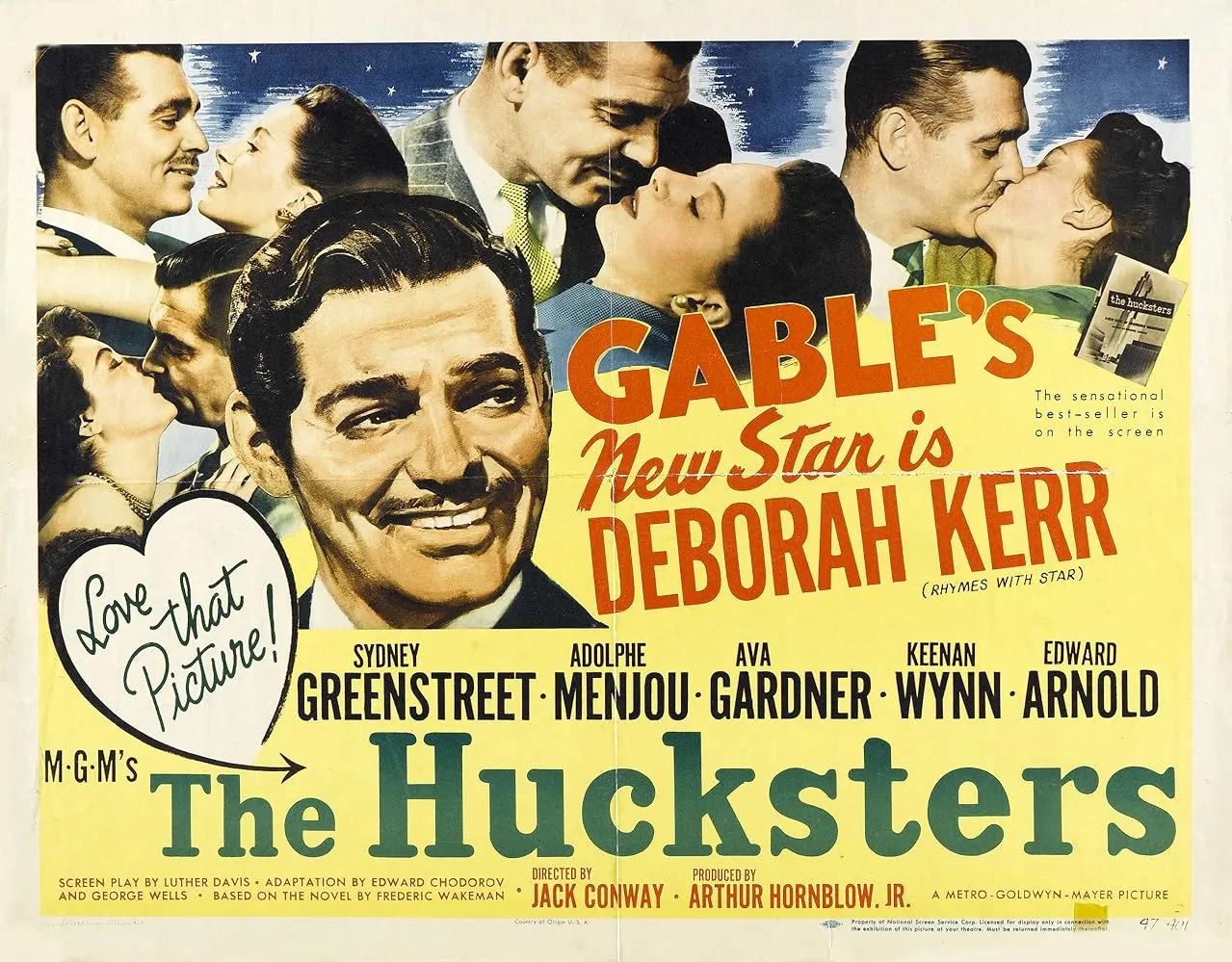
Are there not-too-expensive alternatives to Grammarly? I’m starting to get fed up with it.
I began using Grammarly a year ago and loved it for most of that time, but it generates so many false positives that grinding through them can be a chore. I accept only about 30% of the suggestions it makes.
Also, the little helper chiclet that it puts on-screen gets in the way far too often. It is a horrible, horrible user interface and it drives me crazy.
I saw this extremely handsome pig in the front yard of a house in the neighborhood.
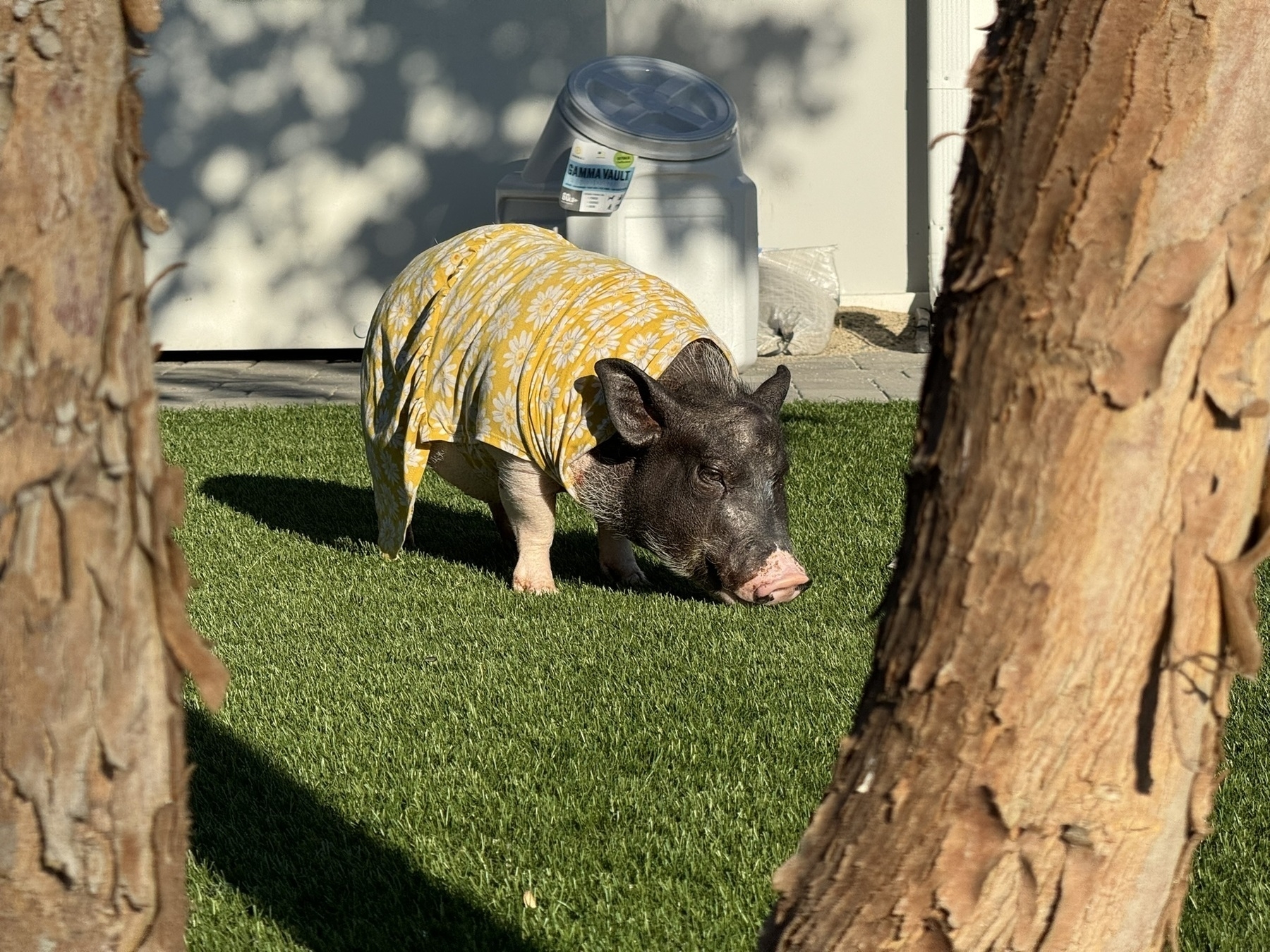

Young people may find this hard to believe, but I remember back in the old days we spent hardly any time making sure our devices were charged.
Overheard: A chain of grocery stores that specialize in donuts, bagels, Swiss cheese, Cheerios and Lifesavers. It would be called Hole Foods.
I don’t know why the new generation of productivity apps hates folders, but I’m sure enshittification has something to do with it.
I have rediscovered the “hide” command in Apple Photos. It’s great if you want to get photos out of sight but do not want to commit to deleting them. I’d forgotten about that command for years.
A mob set a Waymo self-driving car on fire over the weekend. arstechnica.com
Videos of the incident are all over social media. … In one video, a crowd of people surround the car, preventing it from moving. The vehicle is already covered in graffiti and has several smashed windows. One person then throws a lit firework into the cabin; the firework explodes and a fire starts inside the car. The Waymo car then burns to a crisp while it helplessly flashes its hazard lights.
I had a blood draw this morning, and I had a skilled phlebotomist. “Skilled Phlebotomist” would be a good name for a podcast.
The dog and I walked part of Junipero Serra Trail yesterday at the Old Mission Dam.

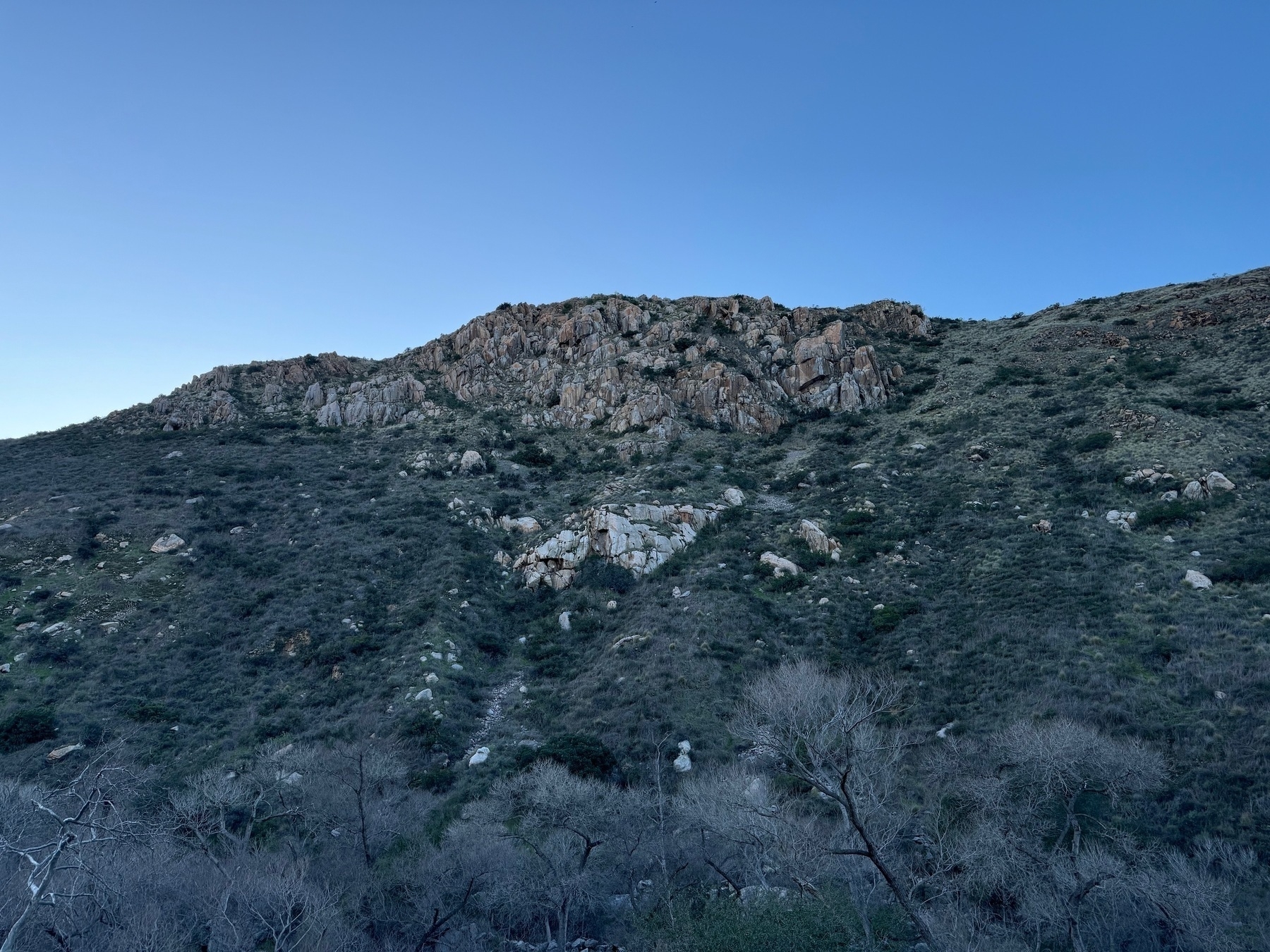
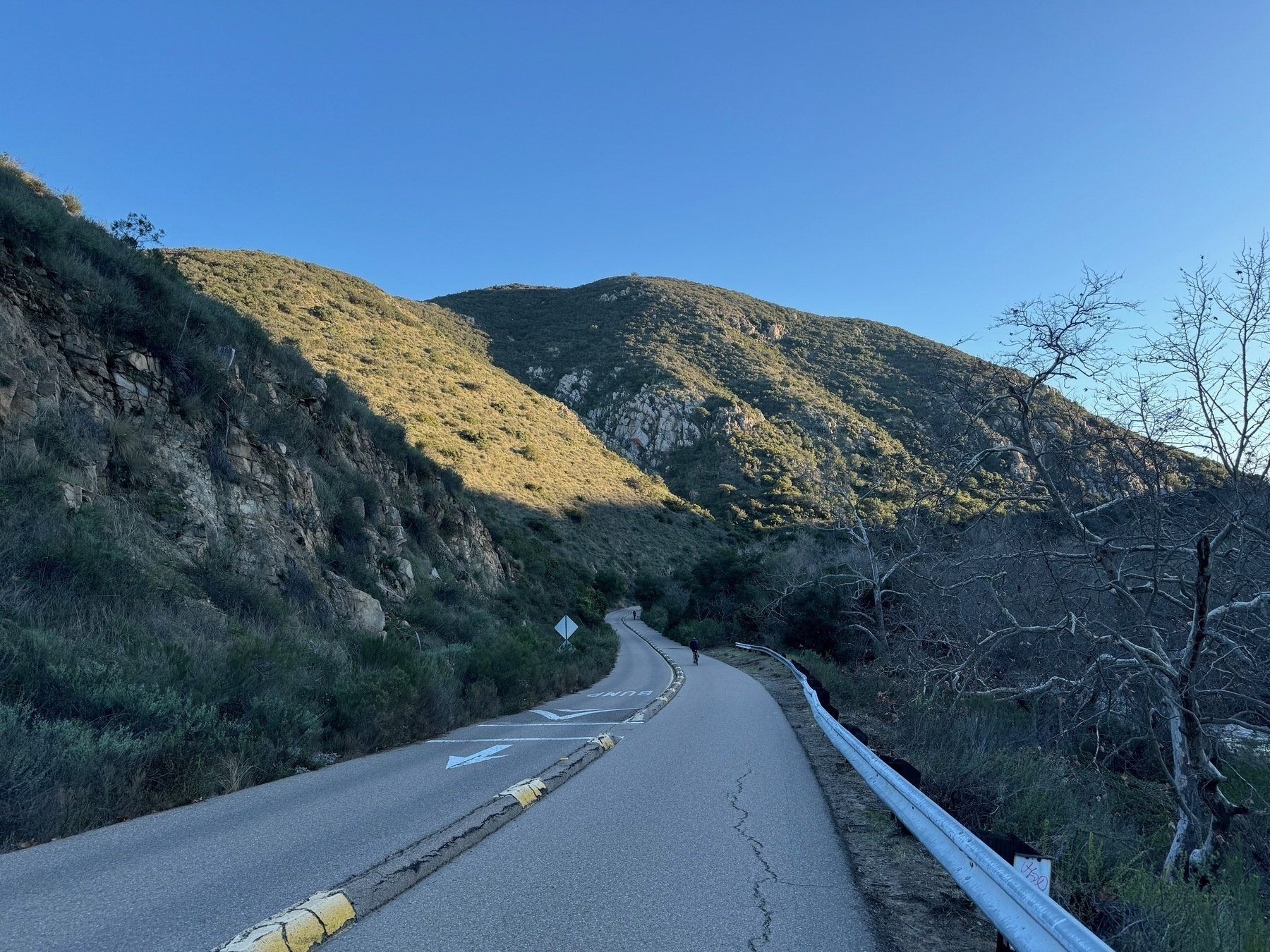
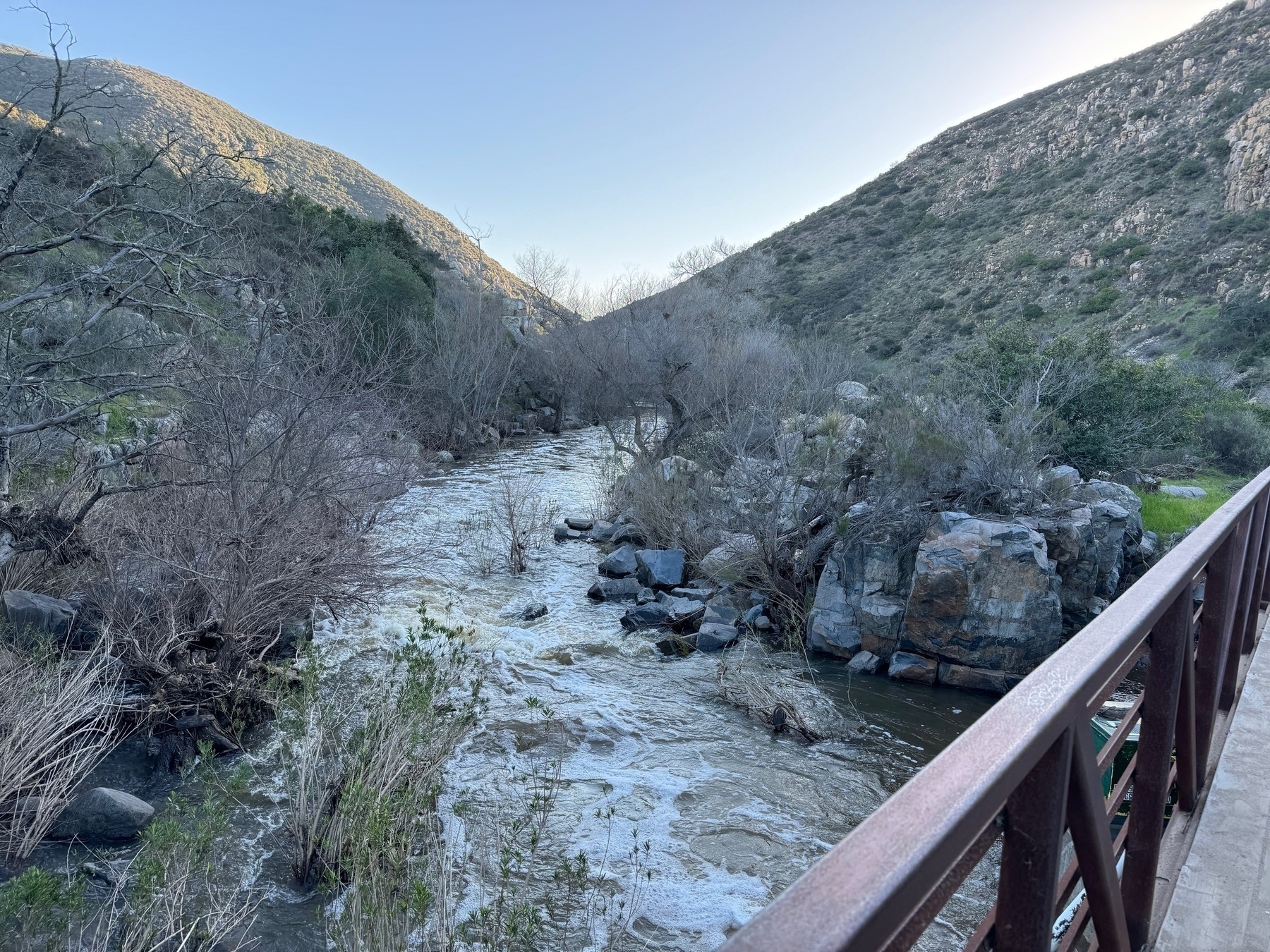
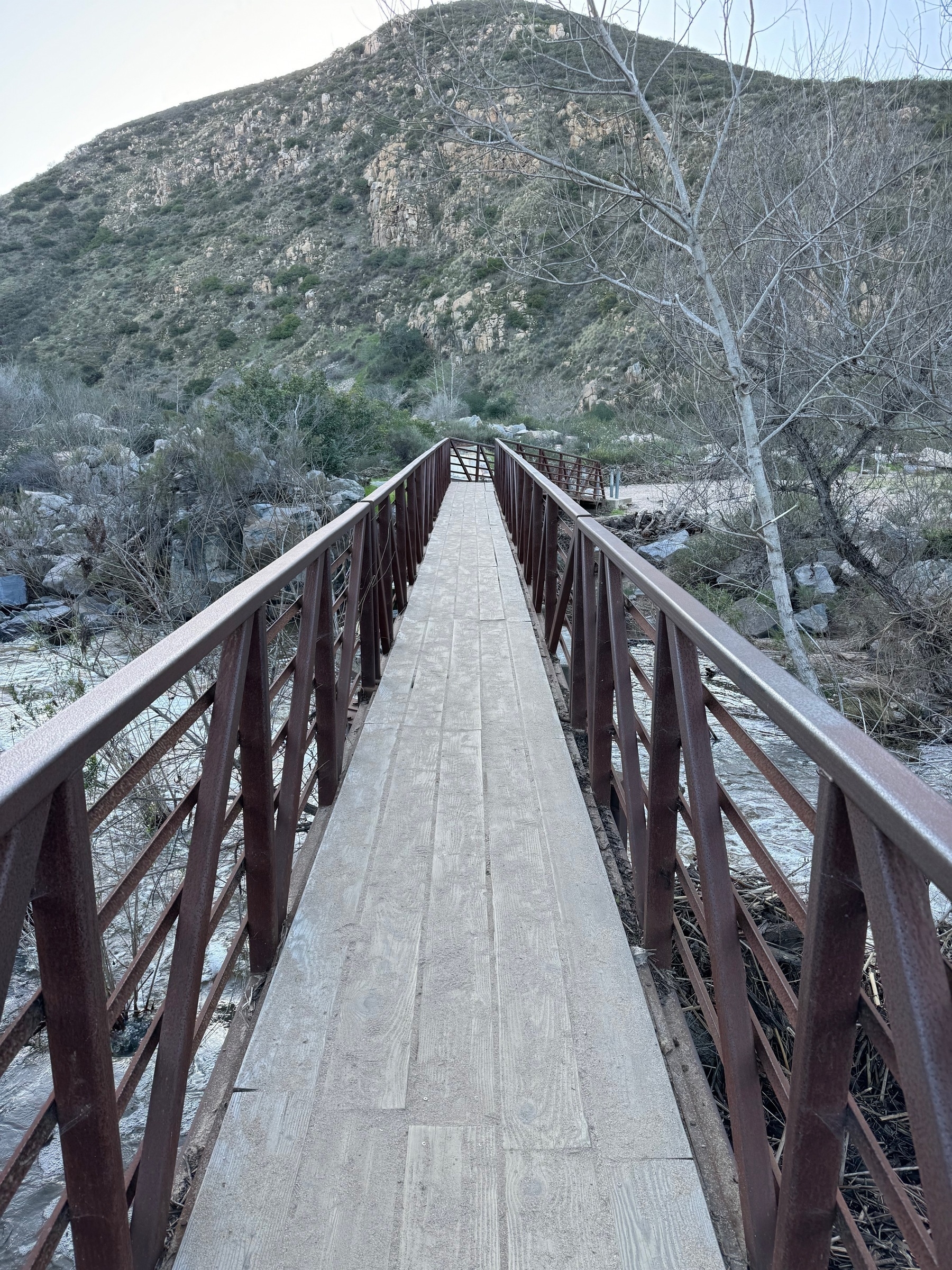

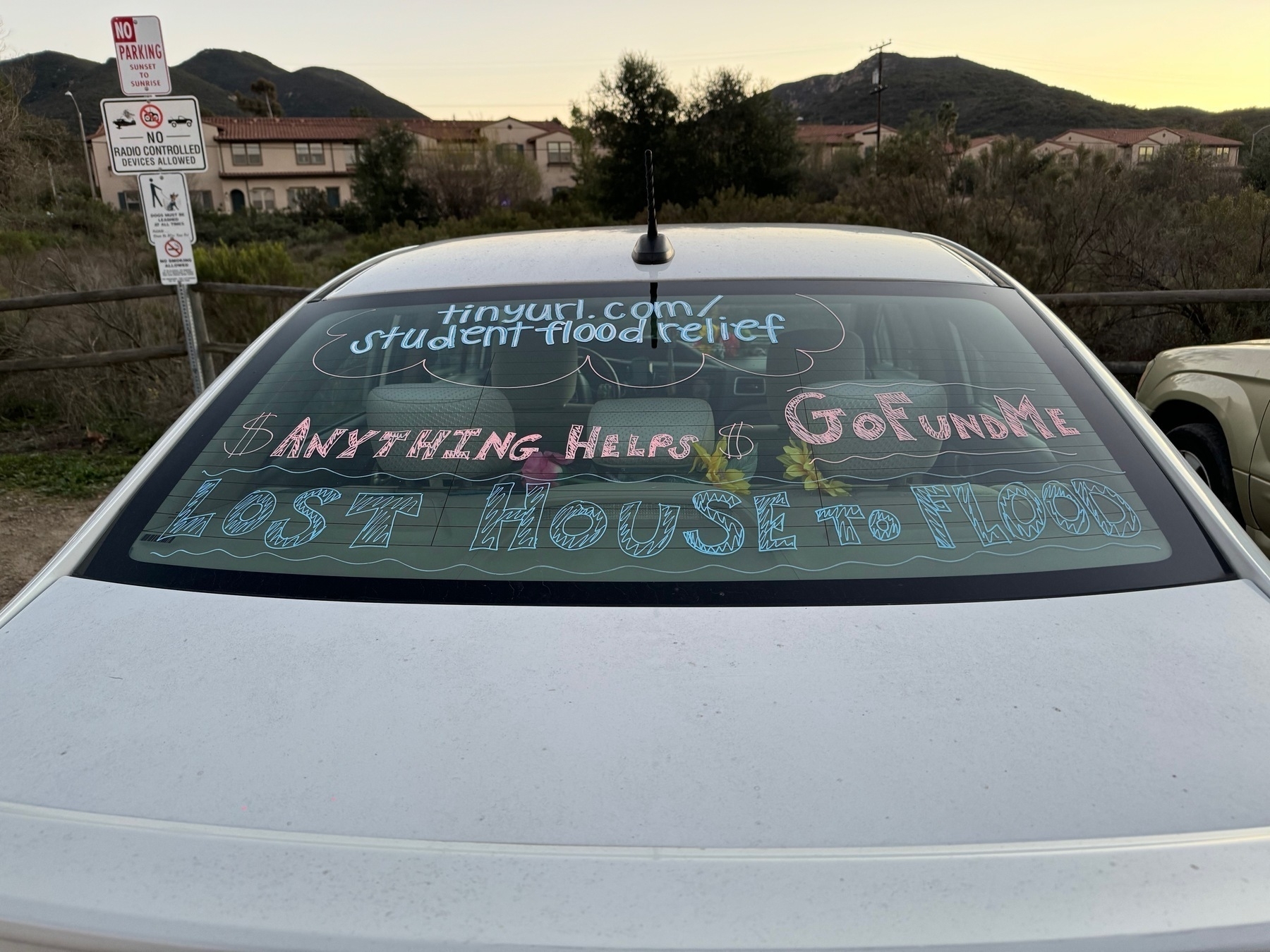
Meanwhile, in a holosuite on Deep Space Nine, Ben Sisko is a 20th Century Earth Boston legbreaker and hitman named Hawk.

I hear Taylor Swift‘s boyfriend is participating in something today.
It’s 1947, and Holmes is long retired to a country house, where he tends his bees and his failing memory. He’s struggling to remember a case 35 years earlier that set the course of the final decades of his life.
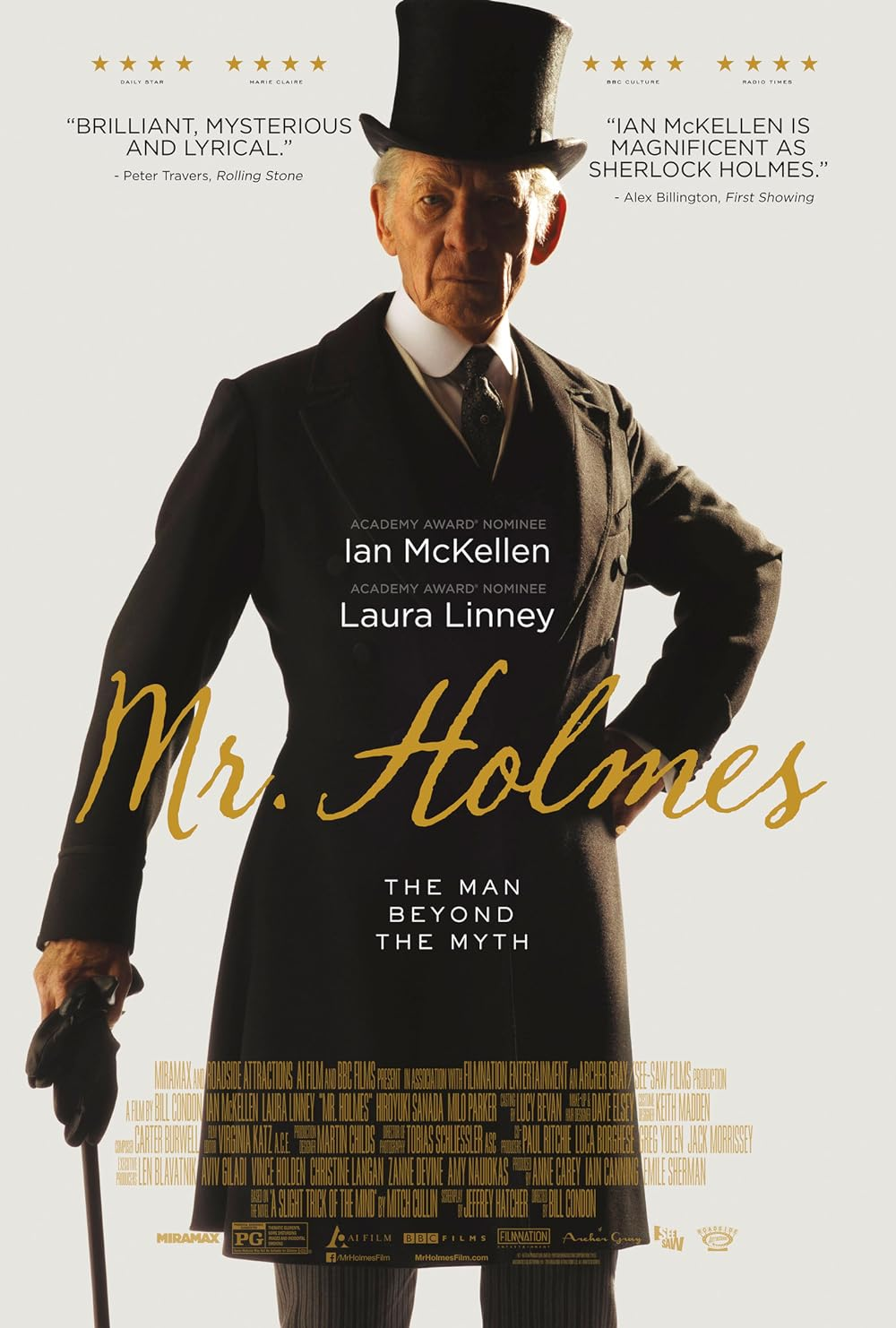
Sad Clown Paradox: Why You Should Check In On Your Funny Friends
Humor has long been used as a tool against stress and uncertainty, perhaps best captured in The Wipers Times: a satirical newspaper that went to print in the decimated city of Ypres, Belgium, during World War I. So named because most of the soldiers reading it couldn’t pronounce Ypres (they said why-pers instead of ee-pruh), the trench newspaper included sporting notes in which gas attacks were reported as a horse race, regular serials (one of the earliest: a detective series “Herlock Shomes”) and a Things We Want To Know section, including “whether the pop’lar Poplar tree’s as pop’lar as it used to be?”
During the COVID-19 pandemic, humans across the globe took to their windows, bathrooms, and balconies to showcase a similarly resilient sense of humor in the face of life-threatening disease, all while grappling with the stress and isolation of lockdown. And later, amidst the devastation unfolding in Ukraine, hackers found the time to make Russian charging stations display the message: “Putin is a dickhead”.
Do you read books on your phone?
Seems like smart glasses wouldn’t be usable by people who wear glasses only part of the time.
How do you survive fame? Podcaster P.J. Vogt talks with his friend, the actor and writer Molly Ringwald, “formerly the most famous teenager in America.” She starred in movies including “The Breakfast Club” and “Pretty in Pink.”
Ringwald has a head on her shoulders and didn’t let fame get into it. And she got out of the country and moved to Paris, where she wasn’t famous.
She says the only thing she misses about being famous is getting tables at restaurants.
The Freakonomics podcast is doing a series of episodes on the physicist Richard Feynman. The first episode is terrific, and I’m looking forward to listening to the rest.
Feynman liked to figure things out from first principles. He didn’t accept received wisdom. This led him to extraordinary breakthroughs in physics and a rich and unusual life. He followed his own path, in science and in life.
But Feynman was a super-genius. You and I are not super-geniuses. If you and I try to apply this principle broadly, that leads to Qanon, anti-vax and other bad outcomes.
Sometimes you have to listen to what the experts say.
However, here in the 21st Century, with institutions breaking down and displaying incompetence, it’s difficult to figure out which self-proclaimed experts to listen to.
NYTimes: Could a Giant Parasol in Outer Space Help Solve the Climate Crisis?
Researchers are investigating whether a solar shield in space that blocks some sunlight could help mitigate climate change.
Are they really calling it a “space parasol?” It should be pink with yellow daisies all over, and tassels at the edges.
It has stopped raining and the sun is out at last, but it is so, so wet and chilly and unpleasant out there.
This is not why we are paying San Diego cost-of-living to live here. I demand to speak to a manager.
TV show idea: Just Chrisjen Avasarala from The Expanse and Susy from The Marvelous Mrs. Maisel swearing. I would watch 13 seasons of that.

Currently reading: Nobody’s Fool by Richard Russo 📚My third or fourth time reading this wonderful book.
What are your favorite and second-favorite social media services? Where do you spend the most time?
Cisco and NVIDIA did a technology integration deal this week—here’s why it matters: Cisco and NVIDIA want to take the hassle out of AI infrastructure. My latest article for Silverlinings.
Thanks to the indomitable Seth, who had me as a guest to talk about one of my favorite novels, “Alas, Babylon,” by Pat Frank. Hugos There.
Clarkesworld: “Why Don’t We Just Kill the Kid in the Omelas Hole,” by Isabel J. Kim.
Via Pluralistic — thanks!
I had a meeting at 11 am at a local coffee shop. It’s been raining hard nonstop since Monday morning. This is not unusual back east, but it is unusual here, and because the drainage infrastructure isn’t built for it, it’s a cause for concern. We’ve had a lot of flooding. Not in my neighborhood—we’re fine—but elsewhere in San Diego, during another round of storms last week, cars were swept away and people had to be rescued.
I put on my rain jacket and hat and drove to the coffee shop. I got there about 20 minutes early. Every seat was full but that’s fine—I’m comfortable standing—so I stood there and drank my coffee.
A man wearing an Apple Vision Pro walked by me to approach the counter. When he walked by me the other way, I stopped him and I said, with no preamble or introduction, “Do you like it?” He knew what I was talking about, of course. He said he did like it. He said he edits video and he had two screens open and also his email. I said, “Now? While we’re talking? While you were at the counter?” He said yes. He was wearing the Vision Pro the whole time.
My meeting arrived a little early. A little more than half-hour in, every phone in the still-crowded coffee shop went off. We all looked at our phones. Tornado alert. Take shelter in a basement or somewhere away from windows. I happened to have gotten a table very far from the window, so I figured we were good.
I messaged Julie to check on her. She said she was going to get the dog and sit on the floor in the back hall, and try to get the cats too.
After a few minutes of no tornado, I thought about driving home. Could I beat the tornado? That seemed like maybe a bad idea, but on the other hand, I’m on a deadline today.
By now, it was after noon, and I decided to check and see what the place served for lunch. They had shakshuka. I love shakshuka. I thought about the options: Drive home during a tornado warning and not have shakshuka and maybe get killed and win a Darwin Award? Or stay in the coffee shop, have shakshuka, not get killed and not win a Darwin award? I went for the shaksuka option.
There was no tornado. It stopped raining. The shakshuka was delicious. The meeting was excellent. I left for home and arrived at about 1:15 pm. The sun was out, even though the forecast called for a solid wall of rain Monday through Thursday.
And that’s pretty much my day so far.
I saw this dog at the park yesterday. He hopes your week is off to a good start.
He’s 16 years old, which is pretty old even for a small dog. (Small dogs live much longer than big dogs.) He’s losing his fur in spots and it was chilly yesterday—hence the stylish couture.

Friends came down from Los Angeles yesterday and we visited the San Diego Zoo


Yes, that is my finger in the preceding photo. I like it anyway.


I picked up annual passes for me and Julie. I want to make a point of going to the zoo and adjacent Balboa Park more often, without needing a goal or making a big deal out of it. They are great places to go and just be and walk around.
A toddler got stuck after climbing into a claw machine looking for a toy in an Australian shopping mall.
It’s me. I am the toddler.